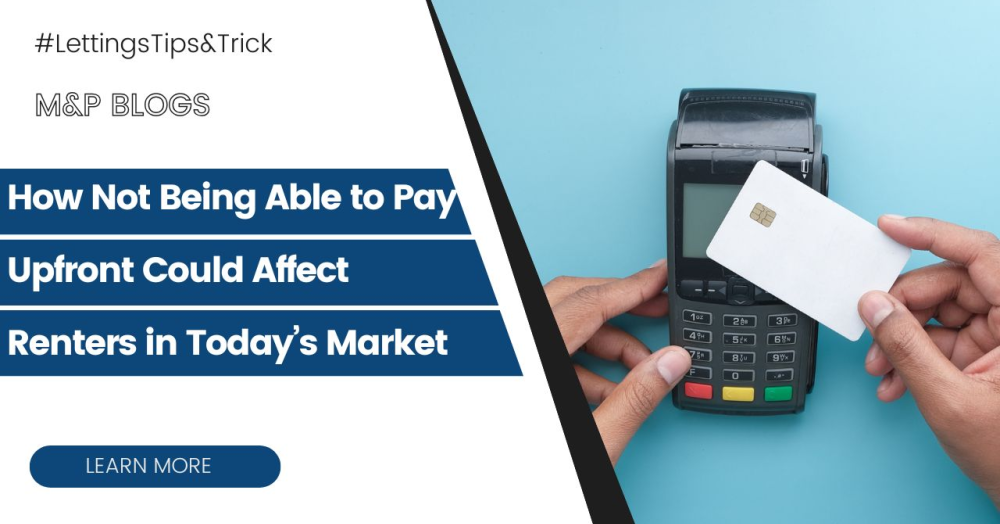For many renters, securing a home isn’t just about finding the perfect property—it’s also about affording the upfront costs that come with it.
In today’s rental market, where landlords and letting agents require deposits, advance rent, and guarantors, tenants who can’t pay upfront may face significant challenges. But what does this mean for renters, and how can they navigate these financial hurdles?
1. The Rising Cost of Upfront Payments
Traditionally, most tenants need to pay:
✔ A deposit (capped at five weeks’ rent for properties under £50,000 per year in rent)
✔ The first month’s rent in advance
✔ Additional rent upfront (often requested for those with weaker financial standing)
With rental prices continuing to rise, the amount tenants need to pay before moving in has increased significantly. For example, if a rental property costs £1,200 per month, the upfront costs could easily exceed £2,500 to £3,000, which is a substantial financial burden for many tenants.
2. Landlord Caution and Risk Management
Landlords rely on guaranteed rental income, and in an uncertain economy, they are more cautious about who they rent to. If a tenant can’t pay upfront, landlords may see them as a higher risk, especially if they have:
- An irregular income (self-employed, freelancers, or gig workers)
- No UK rental history (common for students or ex-pats)
To mitigate risks, landlords may either require a guarantor, request several months of rent upfront, or even reject the application entirely.
3. How This Affects Different Groups of Renters
🔹 First-Time Renters & Young Professionals
Many first-time renters, including students and young professionals, often struggle with high upfront costs. Without a rental history or savings, they may need to rely on family support or guarantor schemes to secure a property.
🔹 Self-Employed & Zero-Hour Workers
Tenants with fluctuating incomes may find it harder to meet landlords' expectations. Even if they can afford the monthly rent, not being able to pay upfront or prove a steady income can make landlords hesitant.
🔹 Families & Low-Income Renters
For families on lower incomes, finding a rental home within budget is already challenging. Being asked to pay multiple months upfront can push many renters out of the market or force them into less desirable housing options.
4. Solutions for Renters Facing Upfront Payment Issues
✔ Guarantor Schemes – Some councils, employers, and private companies offer rent guarantee schemes for tenants who don’t have a suitable guarantor.
✔ Deposit Alternatives – Some landlords accept deposit replacement schemes, which require a smaller upfront fee instead of a full deposit.
✔ Negotiation – If you have a stable income but struggle with upfront costs, some landlords may accept a payment plan instead of a lump sum.
✔ Housing Assistance – If eligible, renters may seek support from local housing benefit schemes to cover upfront costs.
Not being able to pay upfront is a growing issue in the rental market, affecting a wide range of tenants. While landlords need financial security, the high cost of moving can lock out good tenants who simply don’t have large savings. If you’re struggling with rental costs, exploring alternative solutions can help you secure a home without the burden of excessive upfront payments.
If you're looking for expert rental advice, get in touch with MP Estates today!
